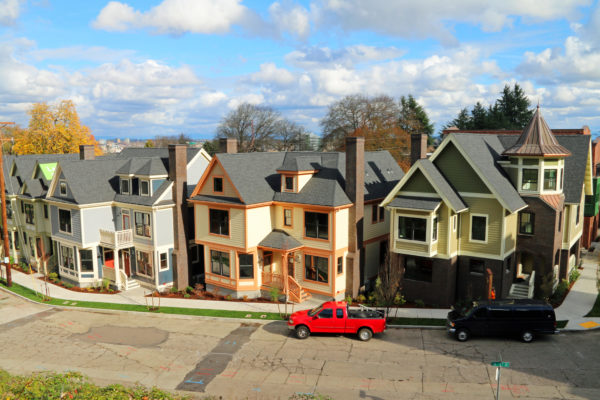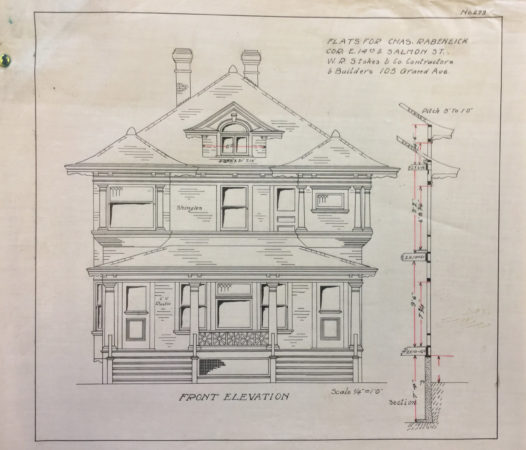
with design guidelines. (Photo Courtesy of Addam Goard)
Responding to growing support for house preservation in Portland’s older neighborhoods, the City Council on Wednesday voted to significantly amend the much-discussed Residential Infill Project. Although the Council largely supported the concepts presented by the City’s Bureau of Planning and Sustainability, a series of amendments were adopted to “make it more attractive to preserve the existing house and less attractive to tear down one house and build another,” according to Mayor Charlie Hales. Many of the City Council’s amendments came as a direct response to testimony received from historic preservation advocates.
Although Restore Oregon had advocated for a more comprehensive list of changes, two of Restore Oregon’s recommendations were included in Council’s amendments that are especially relevant to the preservation of existing houses:
- A further reduction in the allowed size of new single-family houses to approximately 2,000 square feet. Although new duplex/triplex construction would be allowed to be slightly bigger (approximately 2,500 square feet), these “middle housing” designs would be subject to a higher bar of design controls than single-family houses.
- Allowing for the internal conversion of existing houses into multiple dwelling units citywide, but ensuring that such conversion projects do not inadvertently result in frankenbuildings.
- Greatly reducing the percentage of Portland neighborhoods where skinny houses and lot confirmations would be allowed to reduce demolition pressure and ensure greater compatibility of new construction.

architectural character of duplexes and triplexes
from 100 years ago. (Photo Courtesy of Oregon Historical Society)
The concepts will now head back to City staff, who will spend the better part of 2017 drafting zoning code language for public review and further City Council deliberations. Although one of the more controversial parts of the project—the percentage of Portland neighborhoods where new “middle housing” units would be allowed—was not decided at Wednesday’s Council hearing, the Council signaled support for prioritizing house retention and conversions over new construction. During a discussion on affordability, Commissioner Fritz summed up what many historic preservation advocates have been saying for years: “it will be the old homes that are more affordable.”
Although the amendments are a positive step towards curbing demolitions and allowing for the adaptive reuse of existing houses, significant work will be needed over the next year to ensure that new middle housing opportunities do not result in increased demolitions or grossly incompatible designs.


One Reply to “Portland City Council Responds to RIP Testimony; Continued Advocacy Needed in 2017”
Comments are closed.